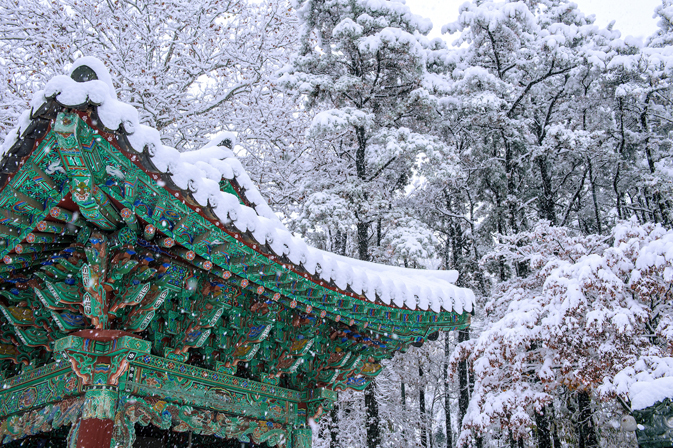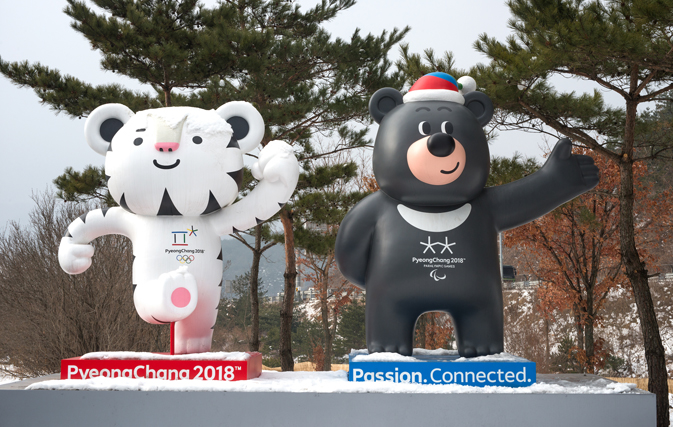PYEONGCHANG, SOUTH KOREA — As the world watches 17 days of Olympic coverage, kicking off today with the Opening Ceremony, Travelweek got a sneak peek of Pyeongchang’s 2018 Olympic venues as part of a recent press trip hosted by the Korea Tourism Organization (KTO).
Highlights included a firsthand preview of the Alpensia Ski Jumping Centre and Gangneung Olympic Park, which includes the 12,000-seat Gangneung Ice Arena, for figure skating and short track speed skating, and the 10,000-seat Gangneung Hockey Centre. During the press trip, which took place in December 2017, workers were busy putting the finishing touches on the Hockey Centre.
After the Pyeongchang Olympics, South Korea will become one of seven countries to achieve the ‘Grand Slam’, having hosted the Summer Olympics, Winter Olympics, the World Cup of Soccer and the World Championship of Athletics.
South Korea’s goal for hosting the Pyeongchang Games is to increase its national brand and its level of exports and trade relations on the international stage. The intention is to showcase the country’s technology and culture, and create a spike in international visitors like the one seen following the 1988 Summer Olympic Games in Seoul.

Seoul
In fact, these Games aim to connect and combine cutting edge technology, such as virtual and augmented reality, to increase the experience, say organizers.
A new high-speed rail link will take passengers from Seoul to Pyongchang in 67 minutes, and from Incheon International Airport to Pyongchang in just under two hours.
And last month the new international terminal opened at Incheon International Airport, part of a massive $5.76 billion building project. There’s also a new cruise terminal at the port of Sokcho.
One noteworthy aspect of these Games is that all competition venues are reachable within 30 minutes, making Pyeongchang 2018 the most compact structure in Olympic history. Events will take place in the Pyeongchang Mountain Cluster and the Gangneung Coastal Cluster.
At the Hanwha Resort Phoenix Park, a ‘Pyeongchang Tourism Night’ was held during the December press trip, which included a press conference led by KTO President, Jung Chang-Soo, and Executive Vice President of Games Operations and Secretary General, Yeo Hyung-koo.
To attract Canadians to the Games, the KTO’s Toronto office created joint tourism packages to South Korea, China and Japan that visit local attractions.
The KTO’s Toronto office is also working with ATPI Sports Events, the official Authorized Ticket Reseller (ATR) ATR of the Pyeongchang Winter Games.
As an added bonus, coinciding with the Games the always-popular Korea Grand Sale is running through Feb. 28. The 2018 Korea Grand Sale, an annual shopping and cultural tourism festival targeting international tourists, offers a wide range of exclusive discounts and benefits on shopping, flights and transportation, accommodations, dining, tourist attractions, entertainment and more, says the KTO. The Korea Tour Card, a tourist-exclusive transportation card used on Korea’s subway, buses, and taxis, offers additional savings at more than 2,000 locations countrywide. The card also offers discounts on the Airport Railroad Express (AREX), DMZ tour bus and car rentals.
Besides the Olympics, what is there to see in Pyongchang and the surrounding area? Here are four of the highlights:
- Woljeongsa Temple in Pyeongchang – A 1,000-year-old, traditional Korea Buddhist temple founded by National Preceptor Jajang during Queen Seondeok’s reign over Silla. It has many treasures and cultural properties such as the Octagonal Nine-Story Stone Pagoda. Visitors can become one with nature as they stroll through the thousand-year-old forest and along the Odaecheon Stream trail.
- Jeonggangwon in Pyeongchang – Jeonggangwon is a ‘Culture Experience Centre’ created to promote the traditional food and culture of South Korea. It has a traditional cooking program where participants can make bibimbap, gochujang and kimchi.
- Byeongbangchi Skywalk in Jeongseon – Get a panoramic view of the true South Korea countryside from high above a skywalk. Adventure seekers can get their thrills on the zip wire suspended 325.5 metres above a 1.1 km-wide valley.
- Haslla Art World in Gangneung – A cultural centre and art park overlooking the East Sea, it consists of a gallery, a hillside sculpture park and the Haslla Art World Museum Hotel filled with artwork.
For the latest updates and destination information about Korea see visitkorea.or.kr.
